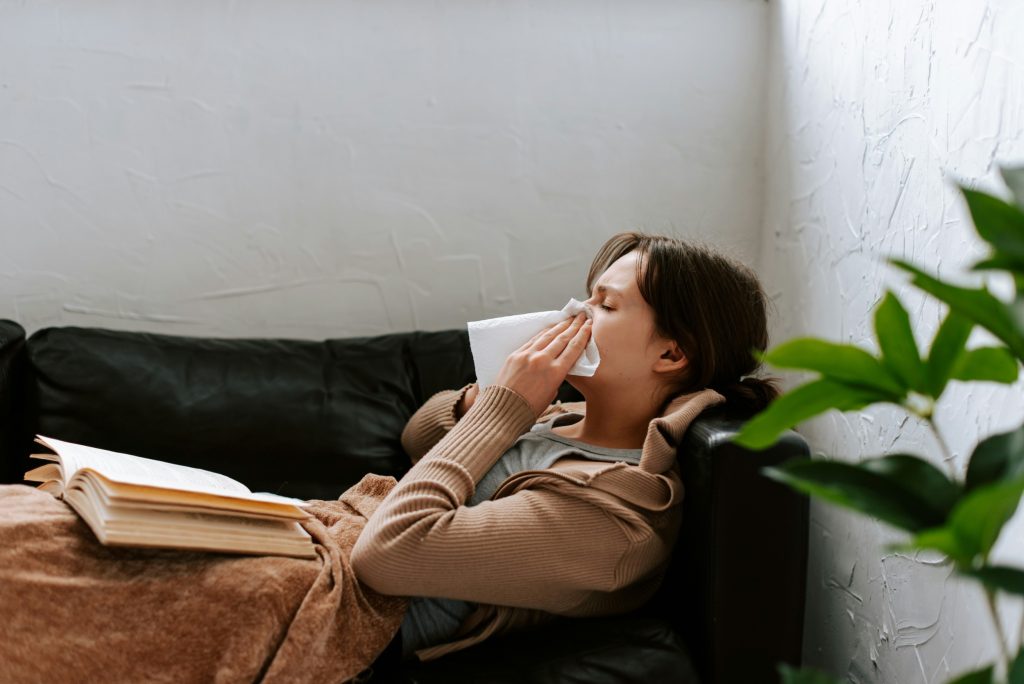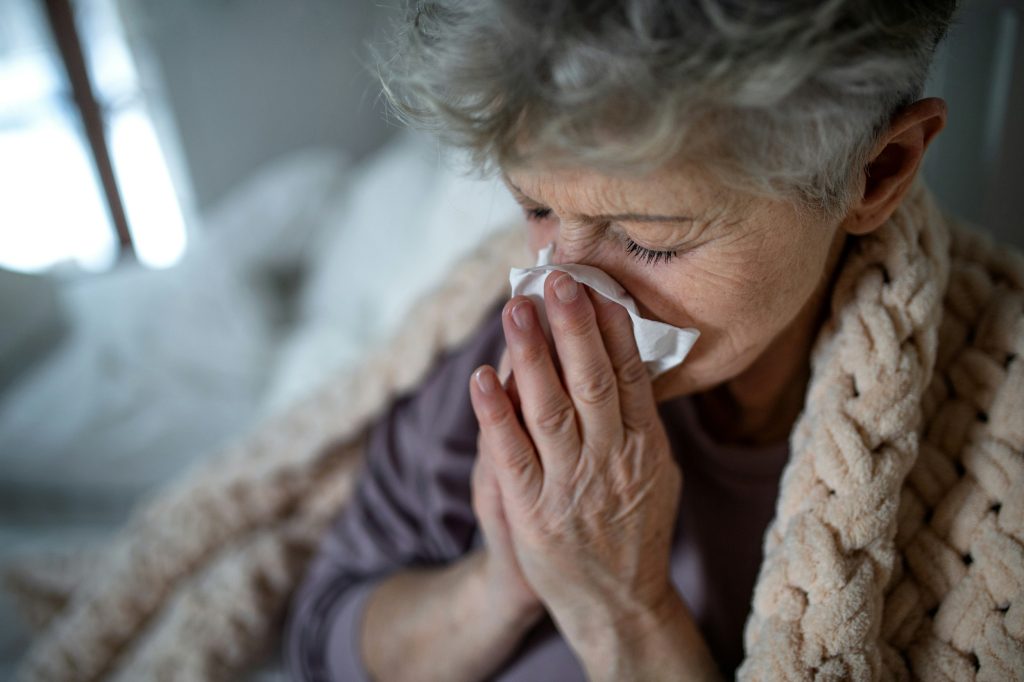As cold and flu season ramps up across Australia in 2025, many people are experiencing the familiar signs: sore throats, blocked noses, coughs, and fatigue. While most flu and cold symptoms can be managed at home with simple remedies, it’s important to know when it’s time to seek medical advice—especially for vulnerable groups like children, the elderly, or those with underlying health conditions.
In this guide, we’ll explore trusted home remedies for cold and flu relief, and outline the warning signs that mean it’s time to see your GP.

Cold vs. Flu: What’s the Difference?
Both colds and the flu are caused by viruses, but they present in slightly different ways:
- Cold symptoms usually develop slowly and include a runny or blocked nose, sneezing, mild sore throat, and a mild cough. Fevers are uncommon in adults.
- Flu symptoms tend to come on quickly and are more intense. Expect a high fever, body aches, chills, fatigue, and a dry cough. Headaches and sore throats are also common.
Knowing the difference helps guide treatment and alert you to possible complications. Keep in mind that COVID-19 can also mimic these symptoms, so testing may be advised if you’re unsure.
Effective Home Remedies for Flu and Cold Symptoms
Most viral respiratory infections resolve on their own with supportive care. Here are tried-and-true ways to help your body recover:
1. Rest and Hydration
Give your body time to heal. Rest and plenty of fluids are crucial to help fight off the virus. Water, warm broths, herbal teas, or electrolyte drinks can keep you hydrated and soothe a sore throat.
2. Steam and Humidifiers
Breathing in warm, moist air can help ease nasal congestion. A cool-mist humidifier or sitting in a steamy bathroom may offer relief—but be cautious with hot steam, especially with children.
3. Saline Nasal Spray or Rinse
Saline solutions can help clear mucus and ease sinus pressure. For infants, saline drops followed by gentle suctioning can make breathing easier.
4. Honey for Cough Relief
A teaspoon of honey in warm water or tea can be effective at soothing a cough. Note: do not give honey to children under 1 year due to the risk of infant botulism.
5. Over-the-Counter Pain Relief
Paracetamol or ibuprofen can reduce fever, headaches, and body aches. Avoid aspirin in children due to the risk of Reye’s syndrome.

Remedies to Use with Caution
While it’s tempting to try every cold remedy out there, some should be avoided or used carefully:
- Decongestant nasal sprays can cause rebound congestion if used for more than three days.
- Antibiotics don’t treat viruses and won’t help with cold or flu symptoms unless there’s a bacterial complication.
- Cough and cold medicines for children under 6 are not recommended in Australia due to limited benefits and possible side effects.
- Zinc and vitamin C have mixed evidence—some studies suggest modest benefits if taken early, but they’re not cures.
When to See a Doctor for Cold or Flu
While many people recover without complications, there are clear signs that warrant medical attention. According to Australian GP guidelines, you should contact your doctor if you or a loved one experiences:
For Adults:
- Difficulty breathing or chest pain
- A fever lasting more than 3–4 days
- Severe sore throat or painful swallowing
- Dizziness, confusion, or persistent vomiting
- A cough that lasts longer than 2–3 weeks
- Symptoms that improve then suddenly worsen
For Children:
- Trouble breathing or rapid breathing
- Bluish lips or face
- High fever, especially in infants
- Inability to keep fluids down or signs of dehydration
- Extreme irritability, drowsiness, or lethargy
- Persistent ear pain or rash with fever
If symptoms are severe, or you’re in a high-risk group (pregnant, elderly, immunocompromised), don’t wait—book a GP appointment or seek urgent care. In some cases, early antiviral treatment for the flu may help reduce the severity and duration of illness if started within 48 hours.
Telehealth or In-Person: What’s Best?
Many mild to moderate cases can be managed through a telehealth consultation, especially if you’re unsure whether your symptoms are serious. Your GP can assess your condition, offer tailored advice, and recommend in-person follow-up if needed.
However, in-person or emergency care is essential if symptoms are worsening or involve breathing difficulties, chest pain, or severe dehydration.
Prevention Is Still Key
As always, prevention is better than cure. Help reduce your risk of getting sick or spreading illness by:
- Washing hands regularly
- Covering coughs and sneezes
- Staying home when sick
- Keeping up to date with flu and COVID-19 vaccinations
Stay Healthy and Avoid the Cold and Flu
Most colds and flu cases can be managed at home with rest, fluids, and a few simple remedies. However, recognising when to seek medical advice—especially if you’re in a high-risk group or symptoms worsen—can make a big difference to your recovery.If you’re feeling unwell or unsure whether to see a doctor, the team at Brecken Health Mandurah is here to help. Speak with your GP or book a telehealth consultation today.

